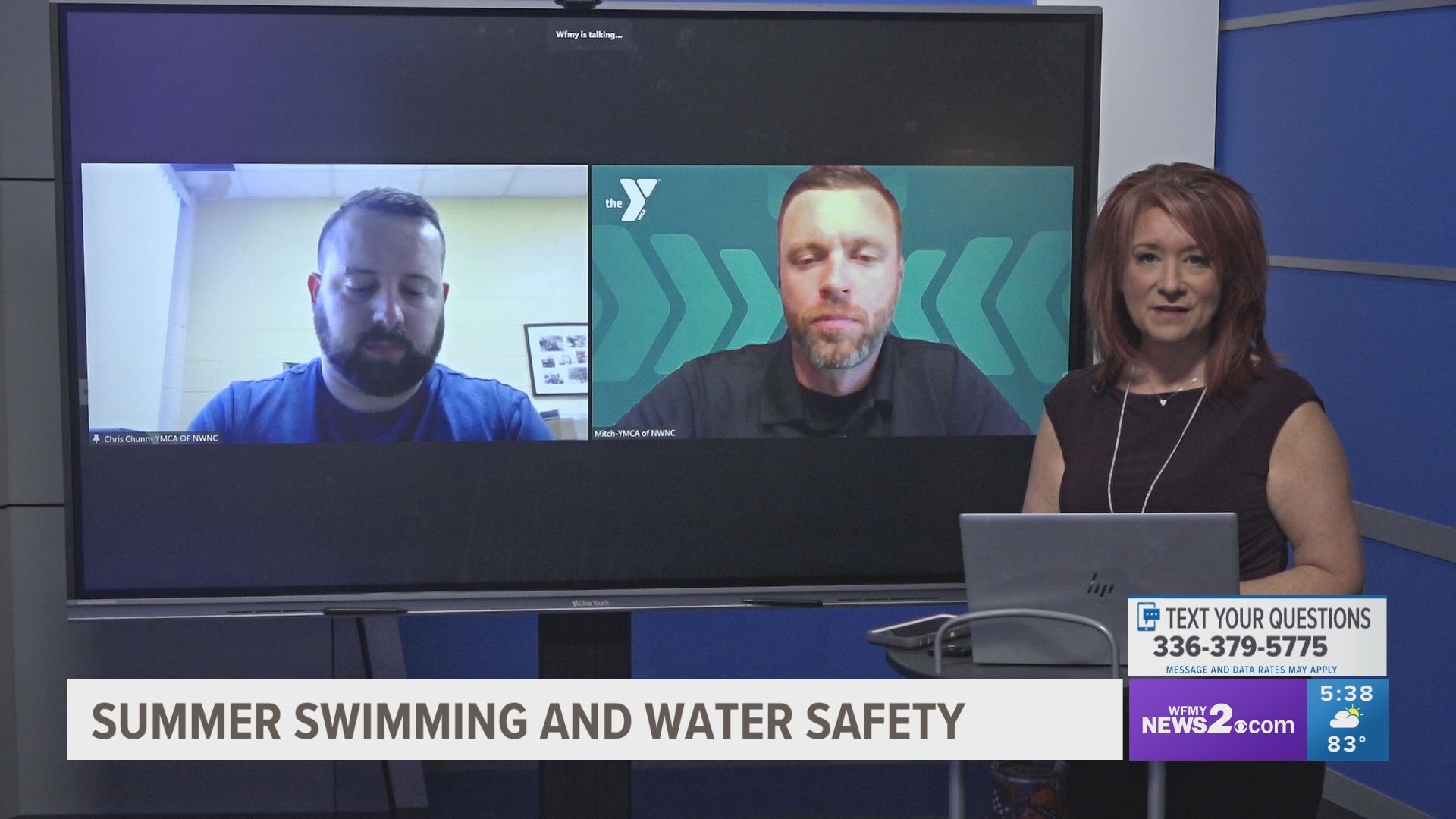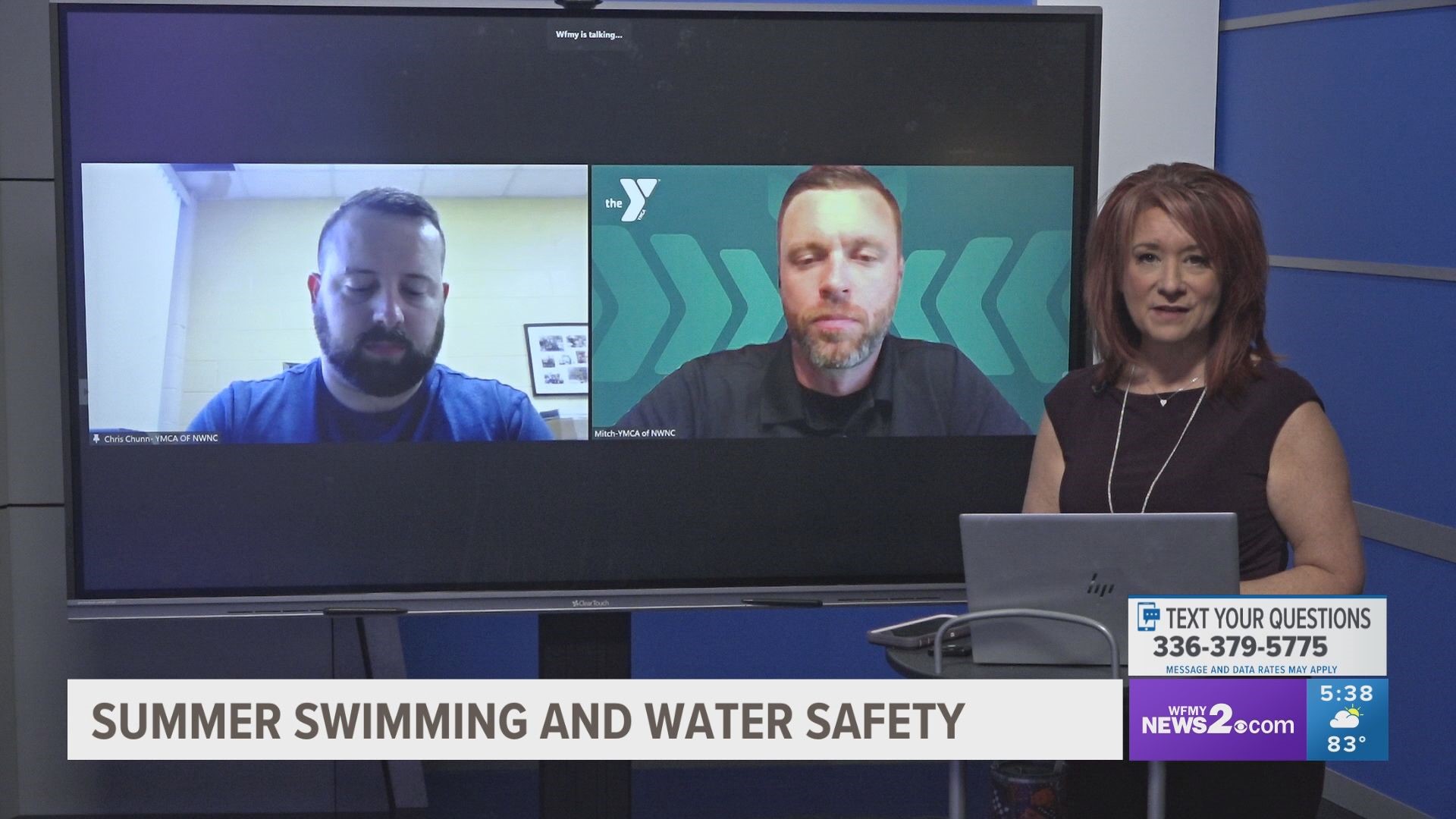GREENSBORO, N.C. — Memorial Day Weekend 2023 was a bust for swimmers ready to start the pool season. Rainy, chilly weather kept folks out of the water, but as summer weather kicks in 2 Wants To Know wants to give you swimming and water safety information. So, we talked to Chris Cunn and Mitchell Lawrence with the YMCA of Northwest North Carolina.
Why is water safety important?
Chunn and Lawrence said that drowning is the leading cause of accidental death for children ages one to four. The CDC said it's the second-leading cause of accidental death for kids under 15.
The YMCA said on average, three children die from drowning daily, and many more end up in the hospital due to near drownings. They said learning basic water safety skills saves lives and is an excellent way for your child to enter the world of swimming.
Water safety tips
When in and around water, the YMCA said adults and kids should remember to:
Make sure children know to always ask permission before going in or near the water. Teaching your children to be water smart is the first step in water safety – be sure they understand the importance of asking permission before going in or near the water.
Never swim alone or without a water watcher. When children are swimming, make sure they are actively supervised at all times. Teach your children that they should only swim in locations where a lifeguard is on duty, or where a responsible adult agrees to watch the children in the water without distractions.
Supervise children whenever they’re in or near water. Whether it’s bath time or taking a dip in a pool or waterfront, make sure your children are within arm’s reach at all times.
Don’t engage in breath-holding activities. Adults and children should not hold their breath for a prolonged amount of time while swimming, as this can be dangerous.
Wear a life jacket. Inexperienced or non-swimmers should wear a US Coast Guard-approved life jacket and it should be appropriately sized for the swimmer.
Don’t jump in the water to save a friend who is struggling in deep water. If a child finds their friend in deep water unexpectedly, their natural reaction may be to jump in the water to try to save them. Even if a child is a great swimmer, a panicked person will overpower them, pulling the rescuer underwater. The Y’s Safety Around Water program teaches the “reach, throw, don’t go” concept of using a long object to reach for them and pull them to safety. By using this technique children can help their friends without compromising their own safety.
Increasing a child's confidence around water
The YMCA said children should learn life-saving skills in case they find themselves in water over their heads. They offer swim lessons for all ages and abilities. They also have a free Safety Around Water program to provide swim instruction and water safety skills to children from under-served communities.


